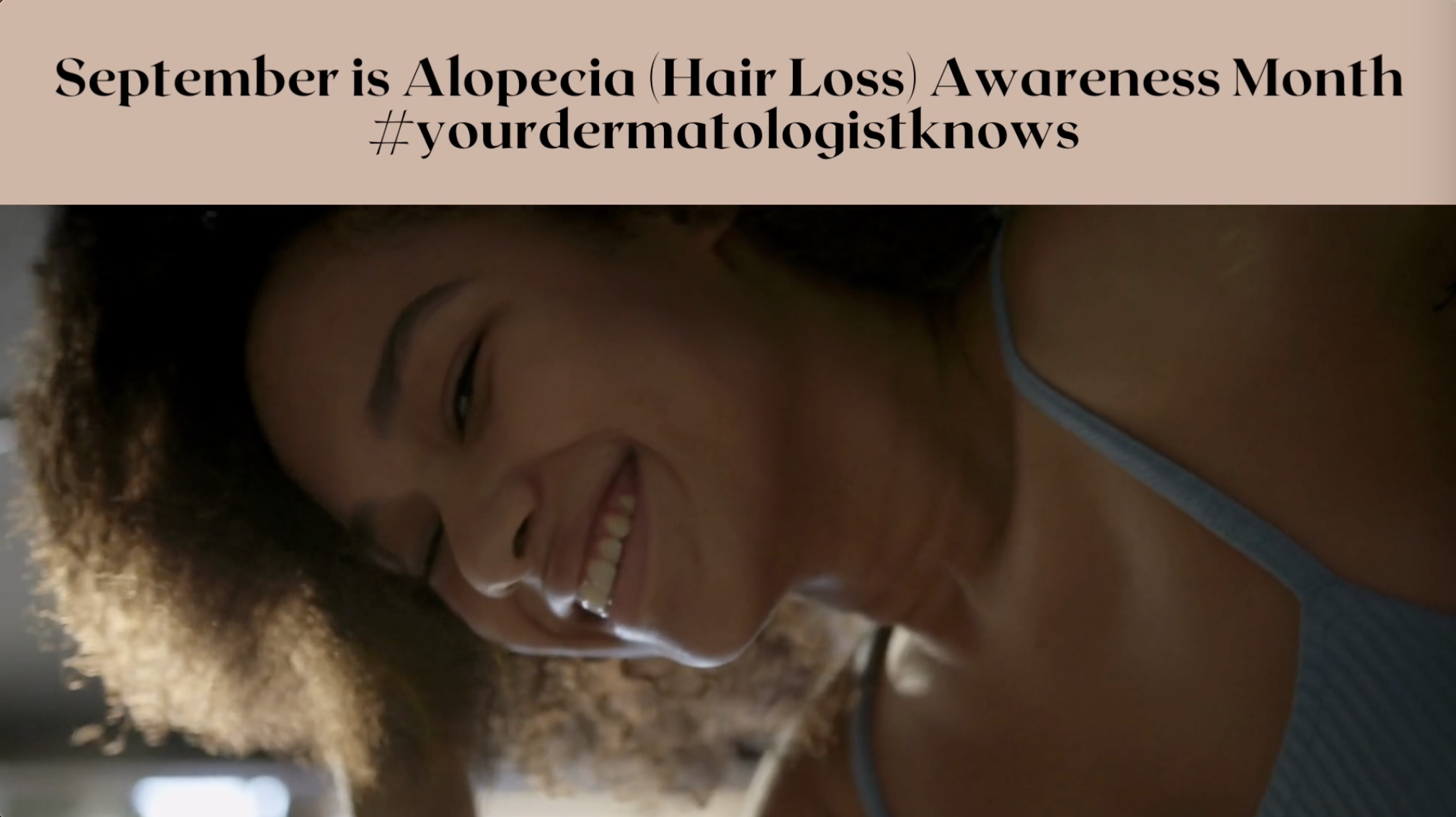
September is Alopecia (Hair Loss) Awareness Month. In order to raise awareness about this important topic, I’ll be discussing it weekly over the next few weeks.
Alopecia, while commonly confused for a specific disease (most often alopecia areata in my experience) rather than a general term, is simply the medical term for hair loss.
🏥 Board-certified dermatologists are experts at recognizing, diagnosing, and managing diseases of the skin, HAIR, and nails. Many of us care a lot about prevention of these diseases as well.
There are many kinds of hair loss.
💈Some are sudden and scary but fortunately reversible: Telogen effluvium, a stress-related form of hair loss, is dramatic and quite distressing but almost always resolves without treatment.
💈Some are insidious but obvious and devastating: Lichen planopilaris starts gradually and almost always causes at least some permanent scarring and disfigurement. It’s tough to treat, but catching it early is critical.
💈Some are always happening to everyone to some degree (at least that’s my take), making early and consistent, holistic efforts key in slowing it down: Androgenetic alopecia (male and female “pattern” hair loss/balding) hits some people hard from an early age but doesn’t become obvious in others until quite late in life.
I believe we should treat our hair like we treat our teeth and gums: Active prevention with professional help.
Imagine having twice yearly exams by a dermatology team (just like your dental team) to catch things early and counseling sessions to help with a multi-faceted approach to prevention and treatment (e.g., medications, stress reduction, nutrition, hormone regulation, lab evaluation).
This may seem like a lot, but people tend to really care about their hair, just like they do their teeth and gums.
Suddenly having way less hair than you’re used to can impact the three major areas of human suffering: health, wealth, and relationships. That’s a big deal.
It’s important to know that treatment options are available.
Sometimes hair grows back without treatment, but if it doesn’t, your board-certified dermatologist can suggest a personalized treatment plan to give you a fighting shot at getting back that great head of hair.


